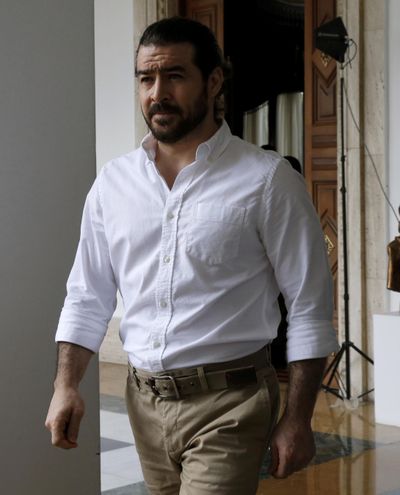Dozens of jailed activists released in Venezuela

CARACAS, Venezuela – Dozens of activists in Venezuela who government opponents consider political prisoners were released from jail Friday in what authorities call a gesture aimed at uniting the fractured nation, officials said.
Among the 39 prisoners set free under strict conditions are former mayor Daniel Ceballos, who had been detained for four years for promoting protests in the western city of San Cristobal, according to Venezuela’s Supreme Court.
Delcy Rodriguez, president of the Constituent National Assembly, called this the first round and promised more prisoner releases.
President Nicolas Maduro said after being re-elected on May 20 in a contested victory that chief among his conciliatory measures would be releasing prisoners jailed for acts against the government.
Venezuelan “is greatly ready for a frank, sincere and constructive dialogue,” Maduro said in a tweet early Friday before the announcement. “The doors are open for those who choose the path of peace and reconciliation.”
The issue of the prisoners has been a sticking point during reconciliation talks, and opposition leader Laidy Gomez said discussions with Maduro a day prior were focused on ending political persecution.
Maduro called for some prisoners to be let go, but ruled out the release of those accused of homicide.
Ceballos, 34, was accused in 2014 of the crimes of rebellion and illegal association to commit wrongful acts, charges rejected by his lawyers, relatives and opponents.
While released, Ceballos must report to authorities monthly, he can’t leave Venezuela and he’s banned from talking to the media or commenting on social media, according to the court.
Human rights groups say that even after this round of releases more than 300 political prisoners remain illegally jailed in Venezuela.
In May, Maduro’s government freed 20 people who were arrested during protests against widespread blackouts and Utah man Joshua Holt, who was jailed nearly two years ago on weapons charges that U.S. officials considered bogus.
But Alfredo Romero, director of the prisoner right’s group Foro Penal, said he fears that officials will now round up more of its opponents, in a repeating cycle.
“They clear out a cell, and then they fill it with new people,” Romero said, calling it Venezuela’s “revolving door.”
It’s unclear whether officials will release opposition leader Leopoldo Lopez, Venezuela’s most famous prisoner, who remains detained in his home.
Lopez is a charismatic former mayor from a prominent Venezuelan family. He was accused of inciting massive anti-government street protests and later sentenced to nearly 14 years.
Heavily armed police from Venezuela’s intelligence service guard his front door around the clock.
The releases Friday followed Maduro’s instructions to a so-called truth commission under the Constituent Assembly, which reviewed the cases.
“Venezuela’s judicial Branch will continue to guarantee citizens’ access to justice, due process and respect for human rights,” Supreme Court Maikel Moreno said in a tweet.